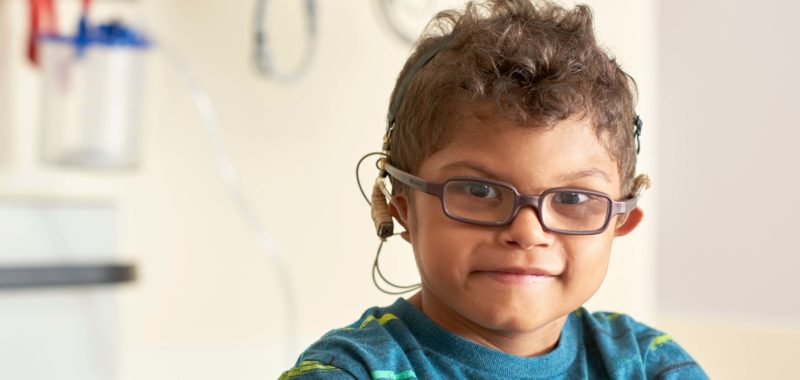Whether your child has received a diagnosis quickly or has traveled a long journey to eventually get one, receiving an eventual diagnosis can bring about a mixture of emotions. On one hand it can be relieving to know what it is and to have some options to move forward. And on the other hand, it can be incredibly stressful. As a social worker, many parents describe to me feelings of shock and helplessness when their child has received a definitive diagnosis.
Powerless that they don’t know what to do next. Helpless that they don’t know enough about the condition to explain it to their child, friends, and family.
Often times they turn to the internet – which can be helpful, but also scary. What I recommend families do after receiving a diagnosis is to start by meeting with either a social worker, care manager, patient advocate or provider where their child was diagnosed. What’s key about these professionals is that they will have a baseline understanding of your child and the condition, and can make tailored recommendations and helpful next steps.
While every child and condition is a little bit different, there are some broad recommendations I like to make to families who have just received a diagnosis and are feeling helpless. Here are the types of things I often suggest:
- Find other families who have the same condition as your child. It could be an online chat, a Facebook group, an in-person support group, or one-on-one meeting. The setting doesn’t matter. The benefit of talking to someone else who has been through what you’re about to go through is invaluable. They will tell you things that we, as medical and support professionals, would never think of because we’ve personally never been through your situation before. At Cincinnati Children’s, we’ll often set up parent mentors with other families who have the same condition. You could also reach out to a foundation related to your child’s condition to connect with other families.
- Similarly, Special Connections , an online support group and community, was created for families to connect to others who have children with special healthcare needs and to share experiences dealing with everyday challenges.
- Ask if there’s anyone who can help coordinate your child’s services. When your child is diagnosed with a condition that is either complex, chronic or life-limiting, the number of appointments and tests can be overwhelming. Care managers can help you coordinate and consolidate these appointments to lessen the amount of time and number of trips you make to the hospital.
- Learn everything you can with the proper filters. This may sound like an obvious one, but I encourage parents to learn everything they can about their child’s condition, but do it from trustworthy and reliable sources. Talk to providers in the medical field. If you have questions or concerns, it can be helpful to write these down before you meet. You can ask them to give you any information both verbally and in writing. Building a trusted relationship with someone who works closely with your child can be a valuable source of support.
- If your medical provider offers a learning session, attend it! It’s a great way to learn what you need to know from a reliable institution. For instance, we’re offering a learning session next month called Empowering Families Symposium: Advocating for Children and Adolescents with Special Needs, which is an all-day event to help families learn how to access community resources, meet special education advocates and most of all network with other families.
- We also offer the Special Needs Resource Directory, which can help parents identify, evaluate and access necessary services and support for their child’s condition.
- Get involved in a way that works and is meaningful for you. Everyone copes in different ways. Some families find it healing to get involved in an organization that does fundraising related to their child’s condition. Others find it rewarding to volunteer their time. Because of their child’s condition, some families want to help but find it difficult to leave their child. So they help by talking on the phone, joining chat groups, or working on projects from their house.
- Consider future needs as well as the immediate. I realize it is incredibly overwhelming for families who have just received a diagnosis to begin navigating through the process of treatment and care. I do think it’s important to mention, however, that many resources have waiting lists, so it’s important to look into future needs as well as immediate needs. Again, utilizing reliable sources, attending learning sessions, and speaking with other families who have been through it, can help you consider future needs that you might not be thinking of.
- Take care of yourself, too. At this point it may be difficult to think about anyone else’s needs but your child’s. However, taking care of yourself and spending time away from your child can often be beneficial for you both. Being overwhelmed and exhausted by your demanding care responsibilities can lead to fatigue and/or put your health at risk. If nursing, family or friends can’t always step in, respite care may be an option for you. Your care manager or social worker will be able to discuss all the options available to you to help organize the care.
Feelings of helplessness and powerlessness upon receiving a diagnosis for your child are completely normal and understandable. Hopefully the above list can help you find a place to start. The most important step is scheduling an appointment with a social worker, care manger, patient advocate or provider who knows your child, the condition, and can connect you to resources that your child specifically needs.


